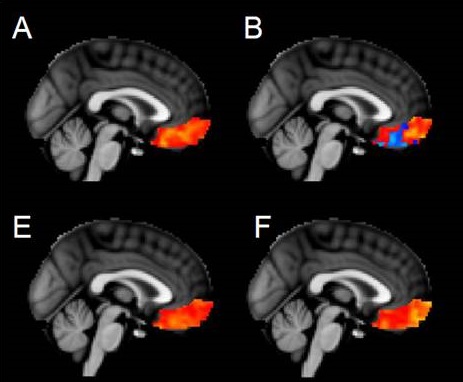
Are brain signals in obese children different than brain signals in normal weight children? Researchers at Seattle Children’s hope to answer that question with a new trial that uses magnetic resonance imaging (MRI) to study brain signaling in children ages 9-11.
Dr. Christian Roth, a pediatric endocrinologist and researcher at Seattle Children’s Research Institute, is overseeing a trial called the Brain Activation and Satiety in Children Functional Magnetic Resonance Imaging (BASIC fMRI) study to look at how the brain responds to food in children who are obese and those who are normal weight.
“Our goal is to understand why some children who are obese still feel hungry after eating a meal,” Roth said. “We want to understand this tendency to overeat in more detail and get insight into the brain signals that cause it.”
Self-regulating hunger and fullness
Roth says that in an average weight person, the body is well-regulated and signals that it has received as much food as it needs, so the person no longer feels hungry. But others continue to feel hungry after eating, consume more food than their body needs and end up gaining weight. That can lead to obesity and a host of other health problems like type 2 diabetes mellitus.
Roth believes the reasons for these eating habits are linked to the same brain mechanisms associated with impulsivity and addiction.
“We’re looking at areas of the brain associated with impulsivity, reward, motivation, and behavioral inhibition for information on how brain signaling looks in obese children compared to normal weight children,” he said.
Neuroscience insights using functional MRI

Roth and his team use functional MRI (fMRI) for these studies, which indirectly measures activity in different areas of the brain while the subjects view images of food. Study participants will first undergo behavioral tests, eat a small meal, have blood drawn and then enter the MRI scan, during which they will see pictures of food.
“One set of pictures will be high-calorie foods like burgers, cakes and cookies,” Roth said. “A different set of pictures will show low-calorie foods like carrots, apples and broccoli. After they view the pictures, we feed the participants a filling meal and do a second scan where we show the same groups of pictures. We’ll look at whether the obese and normal weight children, full after a proper meal, show differences in brain signals when they see pictures of food.”
During the scans, the fMRI reveals which areas of the brain are most active. The researchers will also review blood samples that measure satiety regulating hormones. In addition to the fMRI test, study participants who are overweight will participate in free family-based behavioral weight control treatment sessions every week for six months. There will be another set of fMRI and blood tests at the end of treatment to test if the satiety responses improved.
“We hope this research helps us gain a better understanding of potential obesity interventions,” Roth said. “Whether that’s by addressing behavioral issues or biological issues that we could target with drug therapies, this study gives us a great background in understanding the brain signaling so we can decide what approaches might work best for different children.”
For more information on the BASIC fMRI study, visit this website: http://www.seattlechildrens.org/research/research-studies-clinical-trials/current-studies/BASIC-fMRI/
Resources
- Brain Activation and Satiety in Children Functional Magnetic Resonance Imaging (BASIC fMRI) Study at Seattle Children’s
- Dr. Christian Roth, Seattle Children’s Research Institute
- Obesity Program, Seattle Children’s

